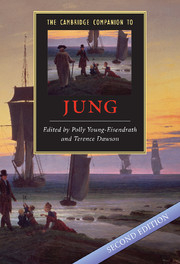Book contents
- Frontmatter
- New developments in the post-Jungian field
- Part I Jung’s Ideas and their Context
- Part II Analytical Psychology in Practice
- 5 The classical Jungian school
- 6 The archetypal school
- 7 The developmental school
- 8 Transference and countertransference
- 9 Me and my anima: through the dark glass of the Jungian/Freudian interface
- 10 The case of Joan: classical, archetypal, and developmental approaches
- Part III Analytical Psychology in Society
- Index
5 - The classical Jungian school
from Part II - Analytical Psychology in Practice
Published online by Cambridge University Press: 28 June 2008
- Frontmatter
- New developments in the post-Jungian field
- Part I Jung’s Ideas and their Context
- Part II Analytical Psychology in Practice
- 5 The classical Jungian school
- 6 The archetypal school
- 7 The developmental school
- 8 Transference and countertransference
- 9 Me and my anima: through the dark glass of the Jungian/Freudian interface
- 10 The case of Joan: classical, archetypal, and developmental approaches
- Part III Analytical Psychology in Society
- Index
Summary
My training at the C. G. Jung Institute in Zurich began in 1948, in the second semester of its existence. Virtually all of the teachers and analysts were, or had been, in analysis with Jung himself, so his discoveries and reflections were coming to us with convincing authority. And beyond this, Jung's method, such as the attitude of respect, found a deep assent in my soul. I can label as “classical” a form of Jungian psychoanalysis which sees the analytic work as one of ongoing mutual discovery, making conscious the unconscious life and progressively releasing a person from meaninglessness and compulsion. The “classical” approach relies on a spirit of dialogue between conscious and unconscious, as well as between the two analytic partners. It therefore also regards the conscious ego as uniquely indispensable to the whole process, in contrast to the “archetypal” school, for which the ego is one of many autonomous archetypal entities. And in contrast to the “developmental” school, the “classical” school defines development not so much by years of age or even by psychological stages, as by an individual's attainment of that conscious Self which is hers or his alone to realize. This position will, I hope, become clearer in the course of this chapter, as will one or two of my own reservations concerning that classical theory and practice which I encountered, so to speak, in their pristine form.
- Type
- Chapter
- Information
- The Cambridge Companion to Jung , pp. 95 - 106Publisher: Cambridge University PressPrint publication year: 2008
- 1
- Cited by

